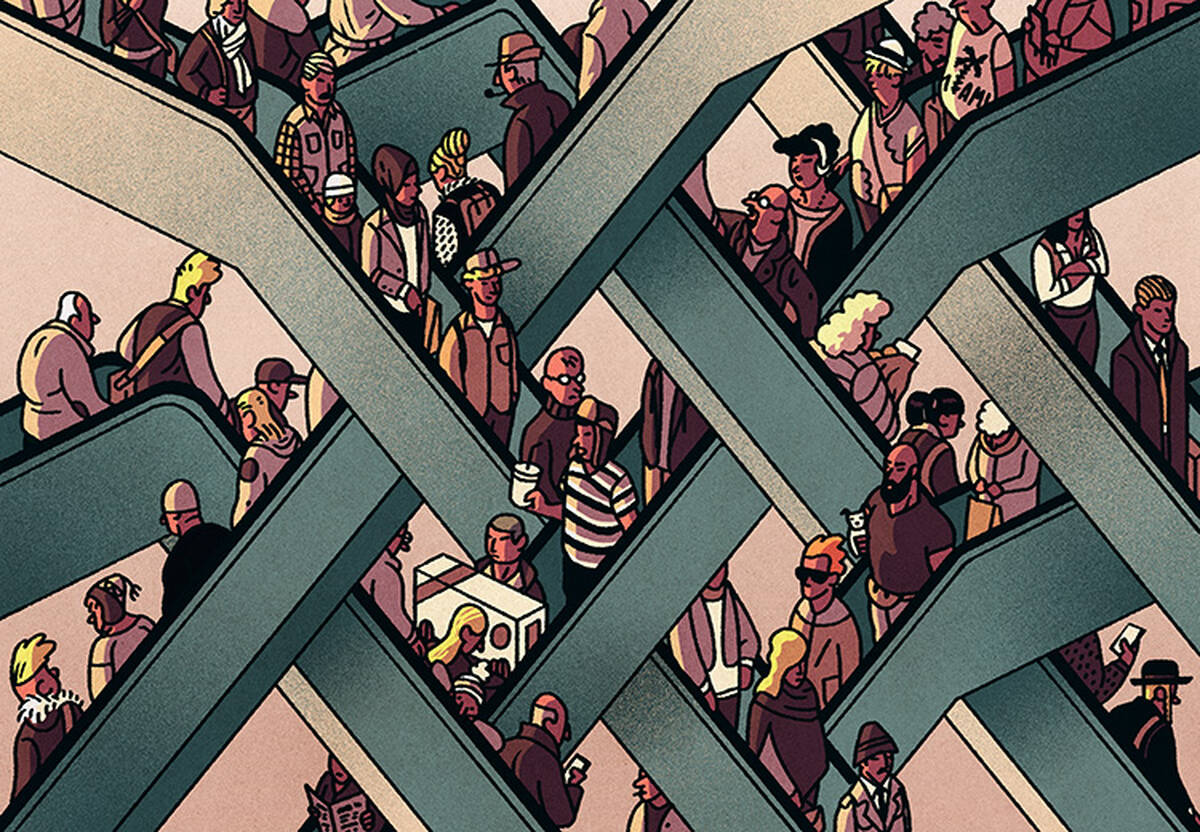Operations Dec 2, 2016
From Long Checkout Lines to Departure Gate Chaos, Can Companies Reduce Holiday Hassles?
An operations professor explores better ways to form queues, ride escalators, and deliver packages.

Michael Meier
The annual holiday season brings with it crowded malls, winding airport lines, and shopping misadventures—inconveniences that leave us befuddled. How can it be so difficult for retailers, airlines, even escalator designers to get it right?
Marty Lariviere, a professor and chair of operations at the Kellogg School, has spent the last seven years helping the rest of us understand the world through the lens of operations. His vehicle? Award-winning posts to The Operations Room, a blog he cowrites with colleagues Jan Van Mieghem, also a professor of operations at Kellogg, and Gad Allon, now at the Wharton School.
Insight has gathered several of our favorites of Lariviere’s posts to get you through the holiday season as quickly, smoothly, and sanely as possible.
Holiday queues. Checkout lines—merely tedious for most of the year—can become outright unbearable over the holidays. And yet, lines are a fact of life at shops or restaurants or other sevice providers that don’t solely accept reservations. Or, as Lariviere puts it, “queuing in many instances is the price we pay to maintain flexibility. If you don’t want to have to schedule every service you might consume ahead of time, you have to accept queuing.”
So what can service providers do to manage snaking lines of irritated customers? One option is “pooling”—where a single queue is served by multiple cashiers or providers. This has the advantage of reducing stress and increasing perceptions of fairness. But as Lariviere explains, if customers can see the length of the line they are joining, and are allowed to jump queues if theirs is moving too slowly, pooling does not necessarily decrease the average wait time. Pooling also reduces the pressure on individual service providers to work as quickly as possible—which is nice for cashiers, but less great for customers waiting in line with a frozen turkey.
In other posts, Lariviere ponders how much stores really want to manage queues in the first place, and explains the reasoning behind abandoning queues altogether—or even serving the last customer first.
Transportation blues. Now consider the challenge of boarding airplanes. As the airline industry comes up with ideas about how to speed up process—after all, time is money—The Operations Room is there to dissect them. Take, for instance, the “early valet” service that Delta Airlines introduced last year, on the assumption that airline employees could store a flight’s carry-on luggage more efficiently than the passengers themselves. Could it work? According to Lariviere, the devil is in the details.
An enterprising group of researchers is working with the Copenhagen airport on another strategy for making the boarding process more efficient—one that sets its sights on the terminal gates. By rearranging seating configurations at the gates, the team is hoping to keep passengers seated longer. “The actual process of shuffling down the aisle may well be less unpleasant than squeezing through Group 4 passengers who have no reason to be out of their seats yet,” says Lariviere.
Or consider instead this transportation quandary. Is it more efficient for those on an escalator to give walkers a free lane or stand two abreast? It turns out that accommodating those who hustle up and down escalators might have a negative impact on capacity as a whole—unless the walkers appear in sufficient numbers.
Delivery woes. And of course it wouldn’t be the holidays if we weren’t concerned about getting and receiving packages. Every year, package deliveries are a huge hassle for apartment complexes. Landlords are annoyed at having to sign for, store, and deliver numerous parcels to their rightful recipients; tenants are understandably annoyed if landlords refuse to accept them. So as e-commerce—and the strain on these buildings—continues to grow, some companies wanting to ship their products have proposed a creative solution: partnering with neighborhood businesses to act as drop points.
And what about delivering to those who have no official address, as is the case for much of the world’s population living in rural villages or crowded cities? One startup has proposed an innovative solution: matching every three-meter-by-three-meter square on the globe with an unique three-word combination (as words are easier to remember than numbers). This is just the sort of service the un-addressed need, says Lariviere. The combinations are assigned randomly, so there is nothing to signal which squares are adjacent. This has its virtues, says Lariviere. But it may ultimately be its downfall. “I know that 15th St. is eleven blocks west of 4th St., and I know how far my kids are biking when they are going to a friend’s house. That is very convenient, and I cannot imagine that people will give up on that easily.”



